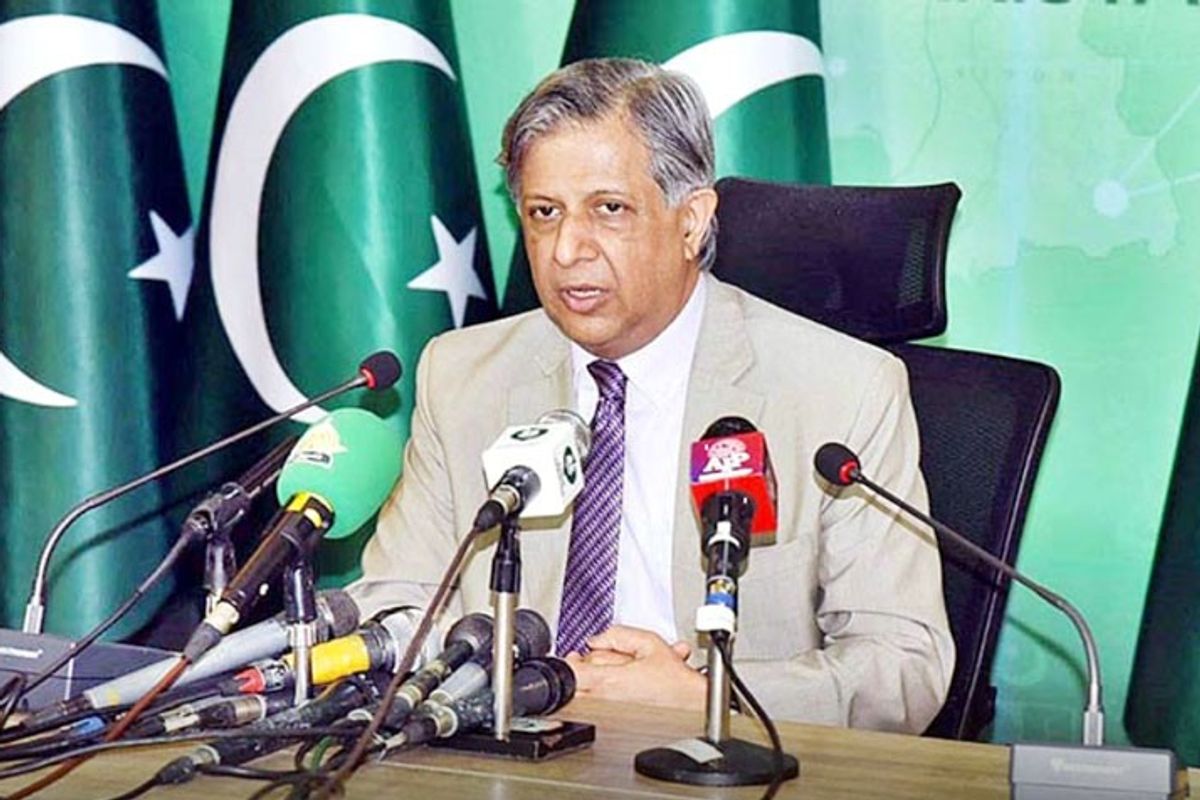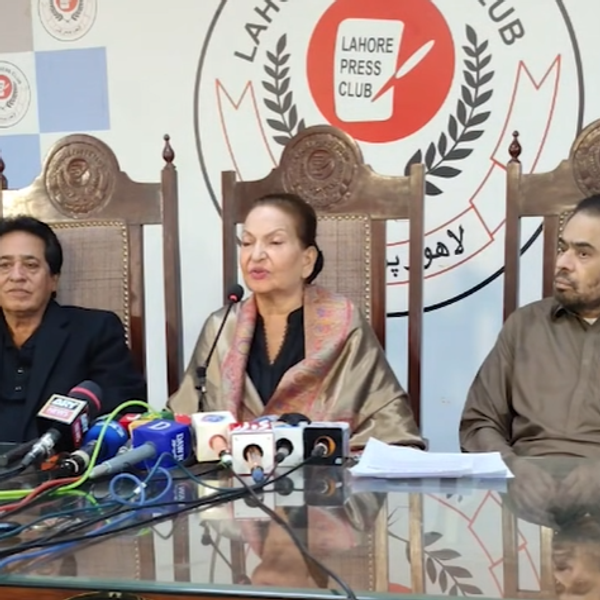Top court ruling on PTI reserved seats in conflict with updated laws, says govt
Law minister says election laws have changed since the court's July 12 decision

Aamir Abbasi
Editor, Islamabad
Aamir; a journalist with 15 years of experience, working in Newspaper, TV and Digital Media. Worked in Field, covered Big Legal Constitutional and Political Events in Pakistan since 2009 with Pakistan’s Top Media Organizations. Graduate of Quaid I Azam University Islamabad.

In this file photo Federal Law Minister Azam Nazeer Tarar can be seen addressing a press conference.
Courtesy: Radio Pakistan
Govt minister says new law prevents 'resetting the clock' to February 8, 2024
Law minister explains revision appeal in the reserved seats case remains effective
The federal government in Pakistan gave rise to a new controversy hours after the top court released a detailed verdict on an order declaring the country’s largest opposition party – the Pakistan Tehreek-e-Insaf (PTI) – eligible for reserved seats in parliament.
Federal Law Minister Azam Nazir Tarar stated that election laws have changed since the court's July 12 decision.
Tarar emphasized that parliament's amendments to the Elections Act 2017, specifically sections 66 and 104A, override the court's ruling.
He stressed that the new law prevents resetting the clock to February 8, 2024, which means independents cannot join political parties after winning an election, and political parties cannot submit priority lists for reserved seats beyond the stipulated deadline.
The minister clarified that these amendments, in line with Articles 51 and 106 of the Constitution, remain in force and are crucial for maintaining the rule of law. He pointed out that the Supreme Court had not commented on these amendments, which was why confusion persisted.
He added that the court’s July 12 judgment reversed the clock by allowing the PTI independents to join a party and submit reserved seat lists within 15 days—something the new law no longer permits.
Additionally, the law minister explained that the revision appeal in the reserved seats case remains effective, as respondents have the right to file an appeal under the Supreme Court Rules and the Supreme Court Practice and Procedure Act.
He defended the two dissenting judges in the detailed verdict and expressed disappointment at the harsh criticism directed toward them. Tarar emphasized that disagreements in the court are a natural part of judicial debate, and seniority should not dominate decisions.
He concluded by stating that the issue of reserved seats must be resolved based on the law currently in force, raising concerns about unanswered questions in the Supreme Court's detailed decision.'ECP violated voting rights'
Earlier in the day, Pakistan's Supreme Court issued a 70-page judgment criticizing the country's electoral watchdog - the Election Commission of Pakistan (ECP) - for failing to uphold its constitutional duty during the 2024 general elections, labeling its decision to withhold reserved seats from the PTI as illegal and unconstitutional.
With an 8-5 majority, the court reinstated the PTI's entitlement to reserved seats for women and minorities, significantly altering the parliamentary balance and stripping the ruling alliance of its two-thirds majority.
Chief Justice Qazi Faez Isa was among the minority judges, while Justice Mansoor Ali Shah, set to become the next chief justice, was part of the majority.
The judgment extensively outlined 39 critical aspects explaining why the PTI is entitled to the reserved seats. The ruling reaffirmed the PTI’s status as a legitimate parliamentary party and critiqued the ECP's failure to recognize this.The court ruled that the ECP must take immediate action to recognize the remaining PTI members of parliament, having already confirmed 39 out of 80 members. The ECP has been instructed to collect signed statements from the remaining members within 15 days.









Comments
See what people are discussing